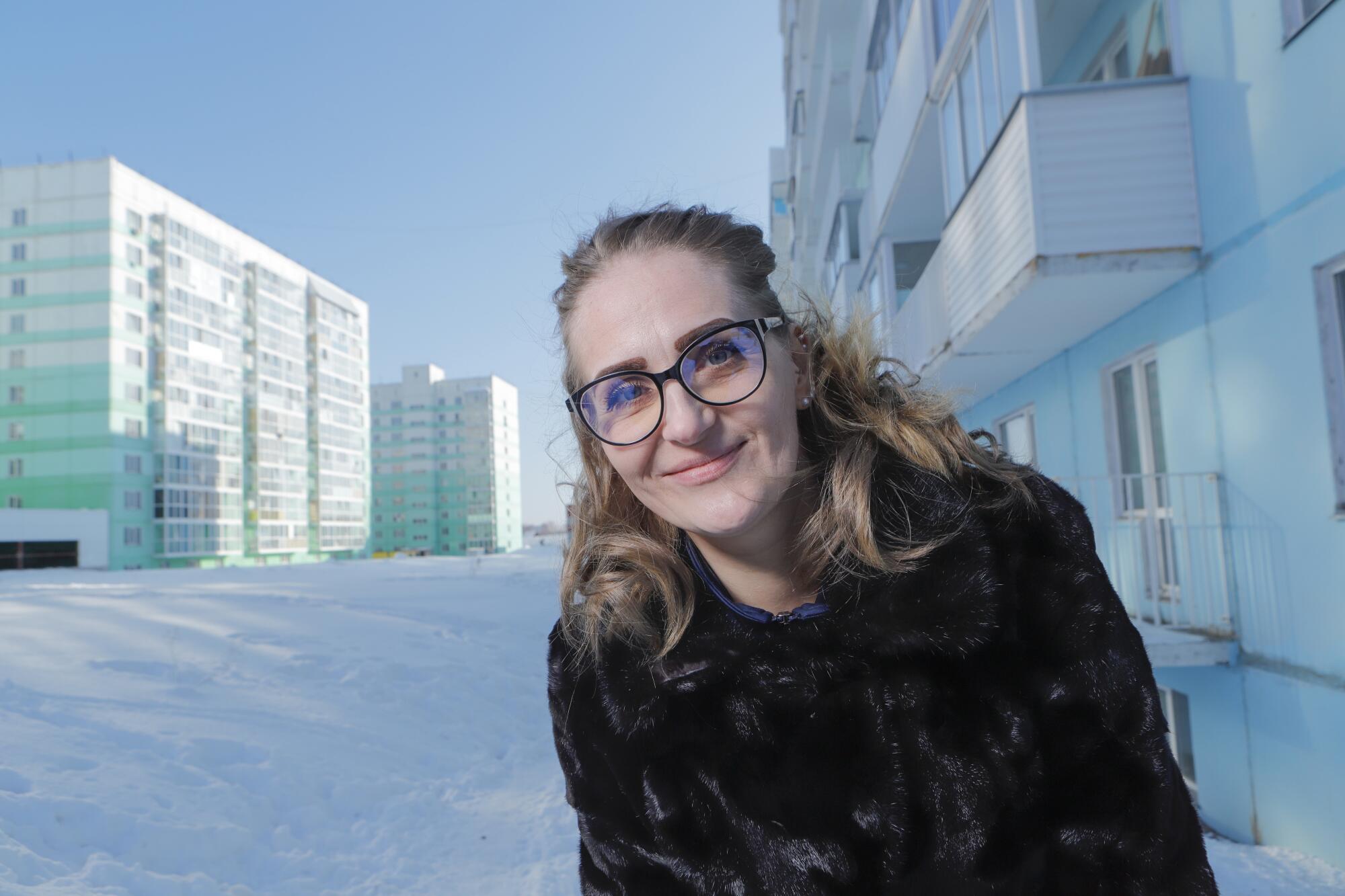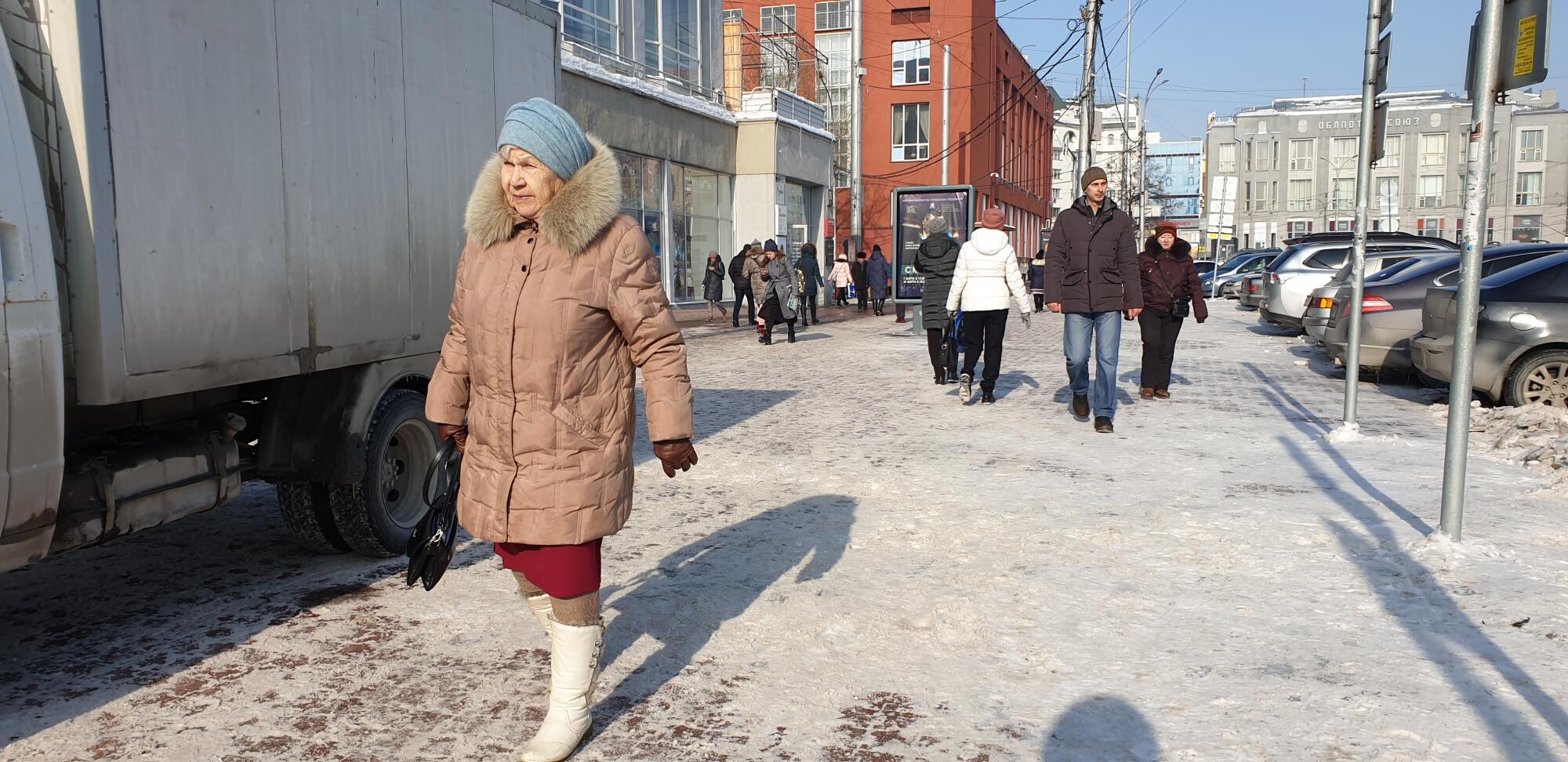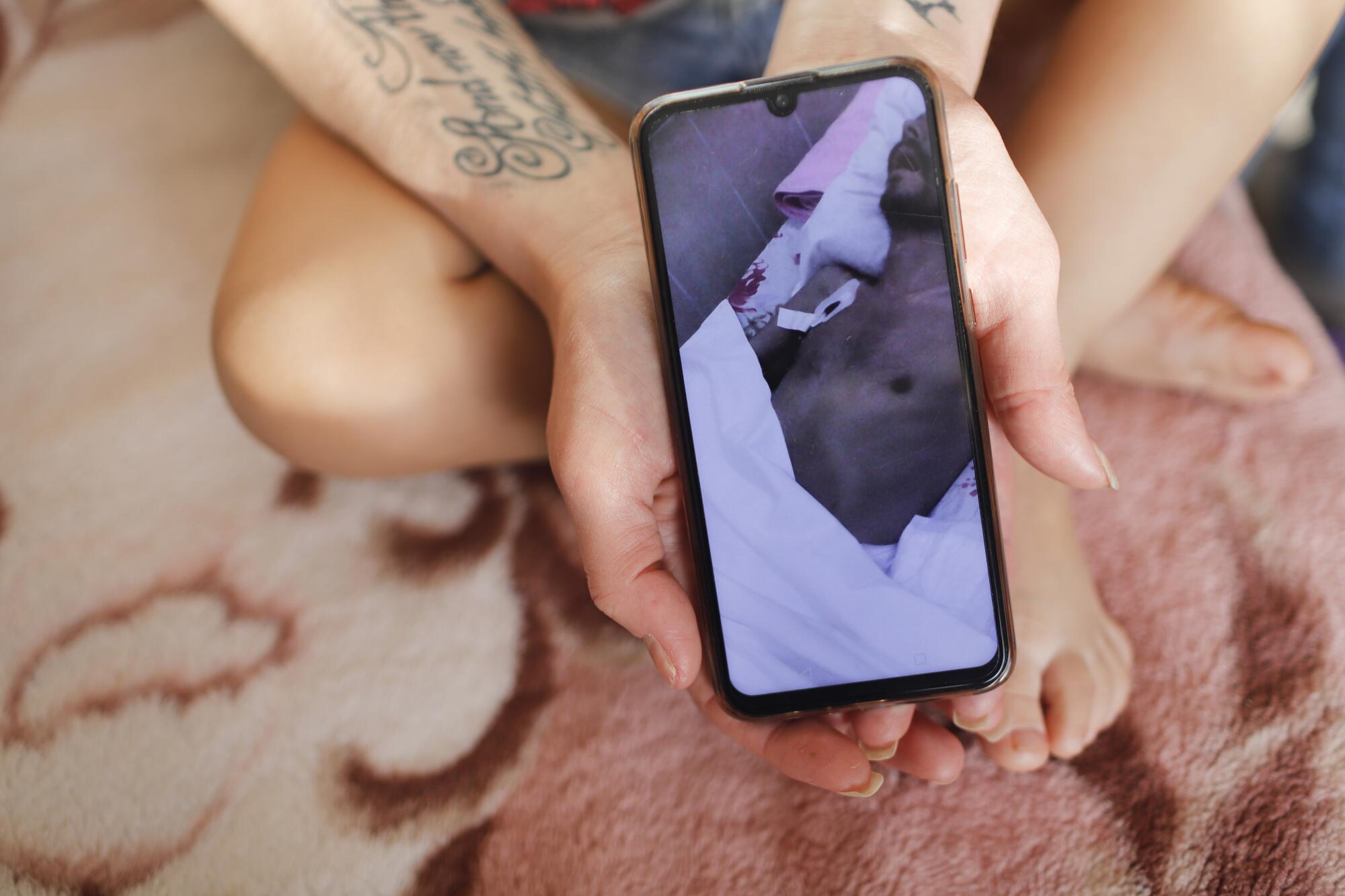
The day Svetlana Sumina was diagnosed with HIV, she went home and turned on the television to a program called “Inexplicably, but a Fact.”
The host explained that the virus was fake, and the drugs prescribed to treat it would destroy her organs.
Sumina became convinced and vowed never to take the medications, a promise she kept for nearly a decade. She and her HIV-positive husband would throw away the drugs the Russian government provided or sell them on the black market.
“We felt fine and were happy,” she recalled.

Then in 2016, Sumina became pregnant and began to wonder whether the doctors were right: “What if this was real and I could give it to my child?”
She started taking the drugs and months later gave birth to a healthy girl.
Her husband never changed his mind about HIV and soon became gravely ill. He died at age 37 less than a year later of complications from AIDS.
Much of the world has been making progress slowing the spread of HIV, thanks to targeted prevention programs and improved access to testing and treatment that dramatically reduces transmission of the virus. The number of new infections each year dropped roughly 16% over the last decade.
Russia has been moving in the opposite direction.
In 2018, it logged 103,995 new diagnoses, or 71 for every 100,000 people, according to the government. That is one of the highest rates in the world outside sub-Saharan Africa — where the epidemic has caused the greatest devastation — and a 78% increase over 2010.

Experts say HIV conspiracy theories — a thing of the past in many other countries — continue to thrive in Russia and significantly hinder efforts to combat the virus.
“HIV denialism is indeed a dangerous phenomenon since it directly affects a person’s decision to start or abandon antiretroviral therapy,” said Alexander Goliusov, regional director for Eastern Europe and Central Asia at UNAIDS.
After years of complicity, the Russian government may finally be starting to recognize the need for spreading accurate information about HIV. In November 2019, the Health Ministry introduced a bill to prosecute those engaged in disinformation campaigns.
The problem is especially rampant far from Moscow. Novosibirsk, the Siberian city of 1.7 million where Sumina lives, has one of the worst infection rates in the country.
“It was just easier to believe that it wasn’t real,” said Sumina, who thinks she and her husband both contracted the virus through intravenous drug use.

“We both believed all that nonsense you hear on TV and the internet — that it was made up by Western pharmaceutical companies to make money and that the HIV drugs will kill you,” she said.
On VKontakte, Russia’s most popular social media site, a group called “HIV/AIDS: The biggest conspiracy of the 20th century” has more than 18,000 members.
Conspiracy theories about HIV date to the earliest days of the epidemic. In Africa, rumors spread that the virus was a form of population control.
When the first case was reported in the then-Soviet Union in 1987, the media there suggested the virus was a biological weapon the U.S. had developed to help it win the Cold War.
Drugs to suppress the virus went on the market in the mid-1990s, but they did not become widely available in Russia until 2002, when the World Bank stepped in to fight rising infection rates.
It didn’t help that infections were concentrated among intravenous drug users, gay men and prostitutes — groups the government did its best to ignore.
Rather than shoot down conspiracy theories, the government more often than not seemed to promote them. The television program that Sumina watched in 2008 aired on Kremlin state media.
The government also put a chill on HIV education efforts with a 2012 law that required nonprofit organizations receiving international funding to register as “foreign agents,” subjecting them to scrutiny and stigma.
Among the nearly 1.1 million Russians diagnosed with HIV, just 41% are taking antiretroviral medications — among the lowest rates in the world.
The treatment gap — combined with increasing annual infection rates — contributes to a rising death toll. In 2018, the Russian government reported that 36,868 HIV patients died, up 15.6% from the previous year.
By comparison, HIV is a far bigger problem in sub-Saharan Africa, but deaths and new infections are on the decline.
President Vladimir Putin hasn’t spoken publicly about HIV since 2006, when his State Council held a meeting about it.
Anti-HIV efforts have also been hindered by Putin’s embrace of the Russian Orthodox Church and its conservative values. The government opposes sex education in schools and passed an “anti-gay-propaganda law” that criminalizes any mention of homosexuality in the presence of minors.
Though Russia’s Health Ministry acknowledges that the epidemic has reached the general population — with 60% of new diagnoses coming from heterosexual contact — AIDS is still widely thought of as a disease of people on the fringes of society.
The diagnosis carries an enormous stigma, said Yekaterina Gorbatova, director of Ostrov, a nongovernmental organization supporting people with HIV in Novosibirsk.
“Many people don’t get tested out of fear of the results,” she said.
For people who test positive for the virus, the idea that HIV isn’t real can be extremely attractive.

“Most of the HIV dissident or denier groups aren’t so much conspiracy theorists as they are confused people, who don’t have enough information about HIV and AIDS to know what has happened to them,” said Rita Loginova, who has reported extensively on the issue for Taiga Info, an online news outlet covering Siberia and Russia’s Far East.
“They get diagnosed but are not getting the kind of counseling and resources they need to understand their situation,” she said.
Ignorance persists even in the medical community.
In February, a doctor in the Perm region of Siberia refused to accept an HIV-positive patient who had recently been released from prison. The case made headlines after a prisoner rights organization reported that the doctor shooed the patient away from the reception desk.
“You are infecting everyone else!” the doctor reportedly screamed.
The case was examined by the regional medical board, which found that the doctor had behaved ethically.
In this environment of stigmatization and misinformation, fewer people get tested for the virus or treated when they are diagnosed. That means they are more likely to spread it — and eventually die of it.
In 2017, a 10-year-old girl died in St. Petersburg of AIDS-related illnesses after her father, a Russian Orthodox priest, refused to let doctors treat her for HIV.
The child’s father told doctors he believed AIDS was a “fiction of pharmaceutical companies” seeking to make money by selling drugs.
“The problem here is not a lack of resources, because the Russian government has the resources to end the AIDS epidemic,” said Vinay P. Saldanha, UNAIDS special advisor. “The problem has been for too long that HIV infection in Russia has not been given the attention and resources that are consistent with the magnitude of the epidemic.”
Last month, the Russian newspaper Kommersant reported that it had been leaked a copy of a Dec. 30 order signed by Putin calling on his Cabinet to develop an HIV strategy that would increase treatment, testing and prevention. The Kremlin has neither confirmed nor denied the report.
As for the bill to combat HIV conspiracy theories, it has yet to be taken up by the parliament, and details such as the penalties for spreading false information have yet to be determined.
For the moment, the biggest efforts to counter denialism have come from outside the government.
In February, Yuri Dud, a popular Russian YouTube blogger, pushed the issue of HIV infection into Russia’s mainstream pop culture when he released a 110-minute documentary called “HIV: The Epidemic No One Wants to Talk About.”
The video features interviews with HIV-positive Russians, doctors and activists in Novosibirsk, Moscow and St. Petersburg. It has has been viewed 16 million times.
Shortly after the release of the video, Russian media reported that screening centers in Novosibirsk and other cities were seeing large increases in requests for tests. Hundreds of people a day in Russia began searching HIV testing on Google, the independent news outlet TJournal reported.

Back in Novosibirsk, Svetlana Sumina, now 38, keeps a photo on her phone of her husband in his hospital bed. The hollow look on his face shows the toll AIDS had taken on his body in the last six months of his life.
“I look at this picture and I think, ‘We were so stupid,’” she said. “It didn’t have to be like this.”
Then she swiped the screen to happier times. Tall and handsome, with a thick head of dark hair, Alexander Sumin stood smiling next to his wife.
“We were inseparable back then,” she said as their daughter, Yuliana, now 3, played behind her in their one-bedroom apartment.
Times staff writer Julia Barajas in Los Angeles and special correspondent Stanislav Zakharkin in Moscow and Novosibirsk contributed to this report.
More to Read
Start your day right
Sign up for Essential California for news, features and recommendations from the L.A. Times and beyond in your inbox six days a week.
You may occasionally receive promotional content from the Los Angeles Times.







